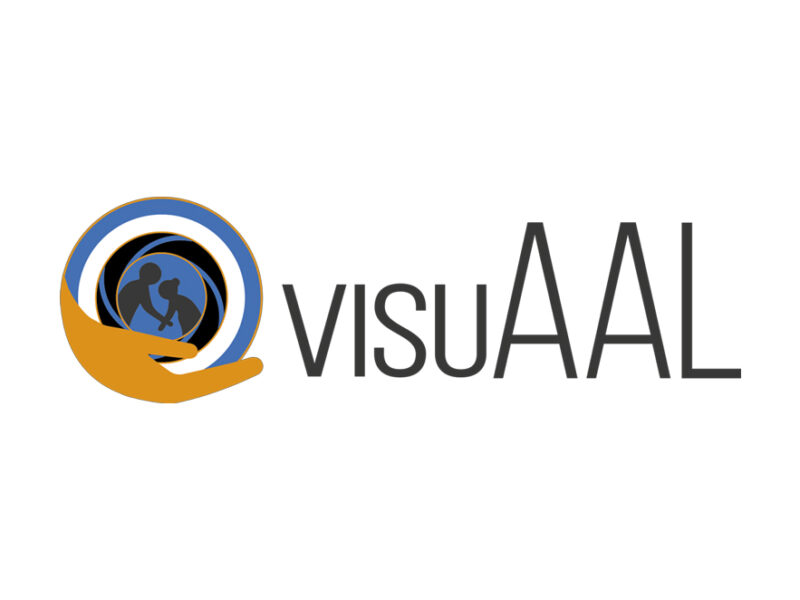
visuAAL
Europe is facing crucial health and social care challenges due to the demographic shift towards an ageing population and related economic impact from increased provision of care. Innovation in Active and Assisted Living (AAL) solutions has the potential to address these healthcare and social demands while profiting from the economic opportunities driven by the Silver Economy (concept related to production, distribution and consumption of goods and services caused by population ageing).
Advances in computer vision have given video cameras the ability of ‘seeing’, evolving their functionality to become ‘smart cameras’. However, the monitoring using cameras can be seen as intrusive and violating rights to privacy, because of the concern that raw video images could be observed by unauthorised viewers or stored for inappropriate use. Acceptance of such technologies is also low because they create a sense of Orwellian “Big Brother” surveillance (authoritarianism or totalitarianism social practice).
visuAAL will seek to increase awareness and understanding of the context-specific ethical, legal, privacy and societal issues necessary to implement visual system across hospital, home and community settings, in a manner that protects and reassures users. Outputs will stimulate the development of a new research perspective for constructively addressing privacy-aware video-based working solutions for assisted living.
The aim of visuAAL – Privacy-Aware and Acceptable Video-Based Technologies and Services is to bridge the knowledge gap between users’ requirements and the appropriate and secure use of video-based AAL technologies to deliver effective and supportive care to older adults managing their health and wellbeing.
visuAAL is a four-year (2020-2024) Marie Skłodowska-Curie Actions (MSCA) Innovative Training Network (ITN), which brings together 5 beneficiaries and 14 partner organisations from Austria, Germany, Ireland, Italy, Portugal, Spain, Sweden, and United Kingdom. visuAAL will provide a transdisciplinary and cross-sectoral combination of training, non-academic placements, courses and workshops on scientific and complementary skills to 15 high achieving Early Stage Researchers (ESRs). These newly hired ESRs will contribute through their individual research projects to fulfil visuAAL’s aims.
MAIN TASKS OF CDC IN THE PROJECT:
During visuAAL, Caritas Diocesa de Coimbra will host Early Stage Researchers from other countries (secondment). Additionally, the Director of the Innovation Department of Caritas Diocesana de Coimbra, Carina Dantas, is member of the Supervisory Committee of the project and she will be one of the trainers during activities targeting users’ acceptance of new technologies.
PROJECT SUMMARY
Project Name: Privacy-Aware and Acceptable Video-Based Technologies and Services for Active and Assisted Living
Project Acronym: visuAAL
Start date: 01/09/2020
End date: 31/08/2020
Total Budget: 3,973,703.4€
Project Coordinator: NA
Partners:
- AIT Austrian Institute of Technology
- Anyvision (NI) Ltd
- Association for the Advancement of Assistive Technology in Europe
- Associazione Italiana per l’Assistenza Agli Spastici Provinzia di Bologna
- Cáritas Diocesana de Coimbra
- Cogvis
- Dundalk Institute of Technology
- enervision
- IBM Ireland Limited
- IrsiCaixa
- Lebenshilfe NRW e.V.
- Stiftelsen för rättsinformation Universidade Católica Portuguesa
Website: https://www.visuaal-itn.eu/
Twitter: @visuAAl_ITN
LinkedIn: https://www.linkedin.com/showcase/visuaal-msca-itn
PROJECT FUNDING:

visuAAL has received funding from the research and innovation programme Marie Skłodowska-Curie, under the European Union’s Horizon 2020.